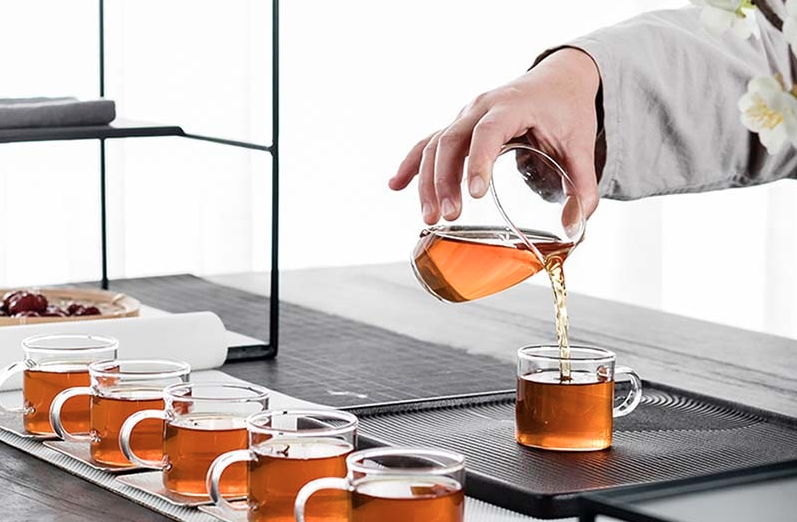The following article appeared in Rooibos Ltd’s enewsletter on 17th February, 2012. It’s a great summary of the currently known health benefits of Rooibos…
The Science of Why Rooibos is Good For You
Rooibos has many proven health properties, but there is still much to be discovered about this unique herbal tea from South Africa. Scientists around the world are investigating its complex composition, chemistry and bioactivity to help consumers understand how Rooibos protects the human body against disease and promotes health and longevity.
Since the mid-1950s, Rooibos researchers have published well over a hundred articles in peer-reviewed journals. Their main findings to date are summarised below.
Rooibos helps to prevent cancer
Rooibos contains powerful antioxidants that have a strong cancer-fighting effect. They prevent or slow down cancer by protecting the DNA in living cells against oxidative damage, or by removing cancerous cells that already have DNA damage.
Rooibos may also be able to switch on certain genes that help to break down carcinogens. Extensive work has been done with rat and mice models proving the ability of Rooibos to delay the development of skin cancer lesions, reduce pre-cancerous lesions in the liver and inhibit the development of papillomas in the oesophagus.
Several articles on Rooibos and cancer have been published in journals such as Mutation Research, Cancer Letters and Nutrition and Cancer.
Rooibos protects the heart and other vital organs.
Drinking six cups of Rooibos per day helps to keep the heart healthy by preventing oxidative damage to the lipids (fat molecules) in your blood, enhancing glutathione (antioxidant of the body) levels and by improving the blood lipid profile. It also reduces total blood cholesterol levels, especially the level of “bad” LDL cholesterol (Phytomedicine, 2011).
Rooibos promotes heart health by inhibiting the activity of angiotensin-converting enzyme, or ACE. This enzyme is believed to be involved in the development of cardiovascular disease, and therefore ACE inhibitors are used to treat hypertension and heart disease (Public Health Nutrition, 2010).
Chrysoeriol, an antioxidant in Rooibos, can prevent and treat vascular disease by inhibiting the migration of smooth muscle cells inside the aorta, a key cause of the narrowing or hardening of the arteries that may lead to a heart attack (Journal of Pharmacological Science, 2009). Chrysoeriol is also an effective bronchodilator, and it helps to lower blood pressure and relieve spasms (European Journal of Nutrition, 2006).
Rooibos reduces stress
Rooibos lowers the production of cortisol – the “stress hormone” – in the body, thereby lowering the effect of the body’s stress response (Journal of Steroid Biochemistry and Molecular Biology, 2011).
Rooibos shows potential in treating diabetes
Aspalathin – the main antioxidant in Rooibos – helps muscle cells to use glucose more effectively and therefore helps to maintain normal blood sugar levels in mice with type 2 diabetes (Phytomedicine, 2009).
Rooibos protects against oxidative stress in diabetic rats, and is recommended to prevent and treat diabetic vascular complications (Physiology Research, 2006).
Rooibos protects the liver
Rooibos prevents the development of fatty liver disease – a potentially serious condition where fat accumulates in liver cells (Phytomedicine, 2011).
Rooibos helps damaged liver tissue to regenerate, and is recommended as an effective way to prevent and treat liver disease (General Physiology and Biophysics, 2008).
Rooibos alleviates allergies and inflammation
Rooibos helps to improve allergy status by boosting the production of cytochrome P450, a key enzyme that helps to metabolise allergens (Journal of Pharmacological Science, 2007).
The antioxidant activity in Rooibos can help to reduce inflammation and can therefore help to combat colitis, a disease causing ulcers in the colon (Pediatrics International, 2009).
Rooibos regulates immune function
Rooibos can both stimulate and suppress the immune response, depending on how it is used. It therefore has the potential to treat several immune-related conditions, ranging from allergic skin conditions to bacterial infections (Journal of Immunoassay and Immunochemistry, 2010).
Rooibos calms stomach cramps
Rooibos is effective in treating stomach cramps and diarrhoea thanks to the calming effect of the flavonoids on the digestive system (Basic Clinical Pharmacology and Toxicology, 2006).
Rooibos may help you to stay younger for longer
Rooibos protects testicular tissue against oxidative damage, while reducing lipid peroxidation (African Journal of Biotechnology, 2011).
Rooibos shows promise as a therapy to prevent and treat Alzheimer’s disease (Expert Review of Neurotherapeutics, 2010)
Rooibos prolongs fertility and delays ageing in quail hens (British Poultry Science, 2008).
Rooibos protects the central nervous system and slows down age-related degeneration in the brains of rats (Neuroscience Letters, 1995).
People can absorb the active compounds in Rooibos
People are able to metabolise (break down) the key antioxidants in Rooibos – aspalathin and nothofagin – but can also absorb un-metabolised aspalathin into the bloodstream. This proof of the bioavailability of Rooibos helps to explain its health-promoting role (Food Chemistry, 2011).
The antioxidants in Rooibos measurably elevate the antioxidant levels in blood plasma in people, thereby boosting the body’s internal defence systems against disease (Food Chemistry, 2010).
Rooibos is safe to drink and does not affect iron levels in the blood
Rooibos is safe to use. Drinking six cups a day for six weeks has no negative effects on liver or kidney functions, and no negative effect on iron levels in the blood (Phytomedicine, 2011).
What makes Rooibos so unique?
Some of the polyphenols in Rooibos have a structure and function similar to the human hormone oestrogen. Scientists are looking into the potential of Rooibos as an alternative for the treatment of menopausal symptoms and steroid hormone-dependent cancers such as breast, prostate, endometrial and colon cancer (Biology and Pharmacology Bulletin, 2006).
Rooibos contains a complex mix of polyphenols, including the unique antioxidant aspalathin that has not yet been found in any other plant. Rooibos also contains the rare compound nothofagin. Other major phenolic compounds are orientin and iso-orientin, with smaller amounts of vitexin and isovitexin (Journal of Ethnopharmacology, 2008).

